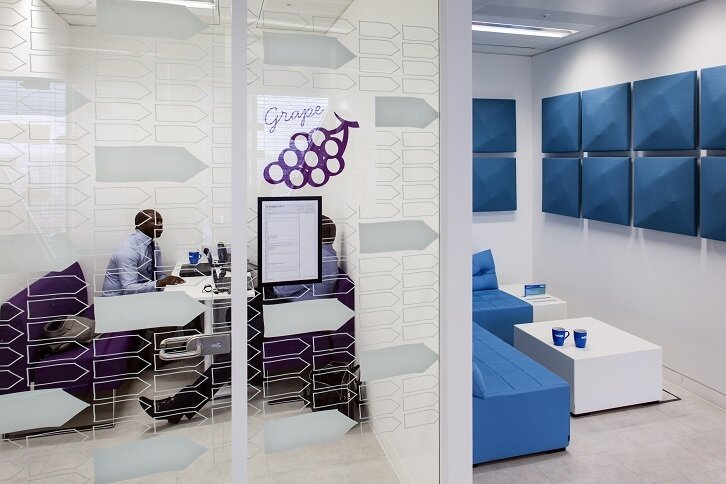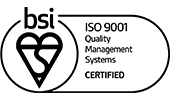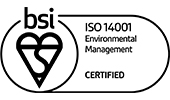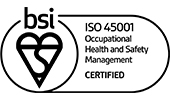Following the success of our first virtual coffee morning, last week we hosted our second meeting with over 40 of our clients, suppliers and industry colleagues. This time we discussed the importance of company culture following a global pandemic, the impact it could have and what this could mean for our future workplaces.
We were joined by guests Richard Ford, Head of Office at BNP Paribas Real Estate Bristol with over 25 years’ experience within the office market, Jeremy Richards of JMark Consultants Limited and former Lead Director of JLL South and Wales, as well as Alice Stephenson, Founder and CEO of Stephenson Law which is a next-generation law firm operating a remote workforce.
Over the next few weeks and months, whether we find ourselves back in the office or still at home, employers will be learning the opportunities from this global disruption and will hopefully be creating an even better working environment for employees rather than settling back into old ways.
Here is a summary of what we discussed:
What is the role of culture in the workplace? How can we define it?
Jeremy: “The culture of a company should be defined both internally to staff and externally to clients. It represents the core values of the company. The benefits of having a successful company culture are huge – staff retention and recruitment, improved performances and it gives staff a sense of purpose. The drawback is that as a company gets bigger, it gets harder to maintain and there may be pockets of different cultures developing. This will depend on the way these teams are individually managed and there has to be truly supportive management behaviours that come from the top. If leaders aren’t authentic about what they say or what they do, then it’ll only ever be just words.”
Richard: “A strong culture makes a company financially viable and successful, sets you apart from the crowd and helps staff feel motivated. Culture includes having a belief in what you’re doing and creating change. The idea of being a collective purpose is a very compelling one, but effective leadership is key in driving this. If a company’s leadership doesn’t believe in its true purpose, you can’t bring people along with you.”
Alice: “Culture is a nebulous concept. It’s a core set of values you want the company to live by and the team to be aligned to. A successful company culture sets the unwritten expectations and behaviours that employees follow. It is the responsibility of the leaders to shape these expectations and make sure everyone is pulling in the same direction.”
In these unsettling times, is it fair to say that employers have learnt some important lessons? Should some aspects of this new world be welcomed into the workplace with open arms?

Jeremy: “If there is one thing employers have learnt as a result of this pandemic is their ability to trust. So many employers have had to implicitly trust their workforce to adapt and deliver results remotely. Companies should now be thinking about the quality of advice they give to their staff and the flexibility they offer them, whilst focusing on the output of individuals rather than presenteeism. I’m hopeful the 9-5 culture has been broken down as a result. The benefits to both employers and employees will be huge – sustainability of less commuting, flexible working for a better work/life balance, working around appointments and childcare. I think this will be a real game changer.”
Richard: “Facebook and Twitter are potentially making home working a permanent state rather than an option. There is an element of a knee jerk reaction about this, however, we’re right in the middle of an unprecedented crisis, one we’ve never experienced before. There is a tendency to make grand statements about the future of the office, and right now is simply not a place to do so. Perhaps in 6-9 months’ time when we can review what has happened in 2020 and how best to recover through 2021, then we can start reviewing in a serious way how to run our businesses and whether that’s to retain the office, which I suspect it probably will be, but to adopt different working practices.”
In a people-centric business, can digital environments truly foster relationships? And, as we look ahead, how do we retain team culture via technology and remote working?

Alice: “The advantages of a remote workforce is that you’re not restricted geographically – you can recruit the best talent all over the world! There is a balancing act though, where face time is crucial. We’re human beings after all and we thrive off connections, that’s just part of who we are, and you can’t achieve that properly through technology. We are a completely virtual law firm but what we will have is a hub where colleagues can meet up, for client meetings, for example. For us, lockdown has undoubtably adapted our culture. We have always been agile but now even more so, especially as I look ahead at moving to Amsterdam over the next few weeks. The challenge we have found is with supporting junior staff as working virtually doesn’t quite replace the ability to go through a document and give real time feedback. From a pastoral perspective, making sure my team is actually OK has been another challenge. In the office you can sense if something is wrong, you can’t do this as easily over Zoom calls. It also means I don’t know if someone is working long 14-hour days and taking time to recover and have a work/life balance. This period has therefore required us to revaluate our own communication styles, and how we’re speaking and engaging with our teams. Where you can’t check in with all your team members yourself, it’s important to build a management team around you so everyone is doing that, and no employee is forgotten about. Everyone should feel properly engaged with.”
Richard: “You can’t really create magic over a scheduled Zoom call and it’s even harder to create magic without the presence of people.”
Jeremy: “It is also hard to introduce new recruits into an already established culture and environment virtually. You can’t bump into people, spark conversation and create chemistry. You can’t have impromptu meetings that create that sense of culture of really getting to know your colleagues.”
How do you think this culture change will shape the future office market? Will the pandemic bring lasting effects on company culture?
Richard: “We’ve all lived a false existence over the last few months, everyone has been in it together, but it hasn’t reflected real life. Whilst there is going to be plenty of change, hopefully for the better in terms of how staff are treated and the way we work, there is also going to be a new economic reality to this which we’ll need to get through quickly. If working practices change, this will influence the physical office space, either the amount people take, the amount that’s built or the amount they’re prepared to pay for it. My instinct is that most businesses will want to have physical representation and where staff can interact. In terms of how we work, technology will drive working practices and how they develop. Office design and fit out will be important in the physical manifestation of the culture the business is trying to cultivate. Offices will be more imaginatively conceived and developed to attract people there. From the landlord’s perspective, the cost of entry into real estate is incredibly high. From physical build, planning processes and refurbishments, there is a harsh commercial reality that there needs to be a commitment for landlords in spending a lot of cash. Offices in strong commercial centres will become more popular with investors, but those in suburban markets will get weaker as return will inevitably be less. I suspect, in regional areas, city centres will still be popular for office space and I believe it’ll be an opportunity for these regions to take business out of London.”
In a recent study we conducted, almost half of respondents cited well-being and loneliness, closely followed by work/life balance, as the real challenges to remote working. How do we support the well-being of staff during this change?

Jeremy: “Well-being is key. The office can give some people an entire structure to their working week, meeting people, working with their teams. The office of the future will be about coming together for meetings, for training and for well-being – mindfulness/yoga/socialising. It’ll be a social hub and will represent your brand, and that will have a big impact on staff well-being. Remote working can be a perfect storm for employees that are workaholics. Leaders need to be proactive and recognise what shadow they cast.” Read our recent blog on the human cost of home working.
What about health and safety and the legalities that come from home working?
Alice: “Employers still have responsibilities, even if employees are working from home. You have to do risk assessments and support teams in terms of equipment to help them do their jobs effectively. Insurance needs to be appropriate, with new policies and procedures available and in place now. Ergonomic furniture, additional monitors, confidential waste bins, shredders – it’s worth considering every aspect of each department.”
Thank you to all our guests and attendees. Our virtual coffee mornings are released via our LinkedIn page, follow us by clicking here.








